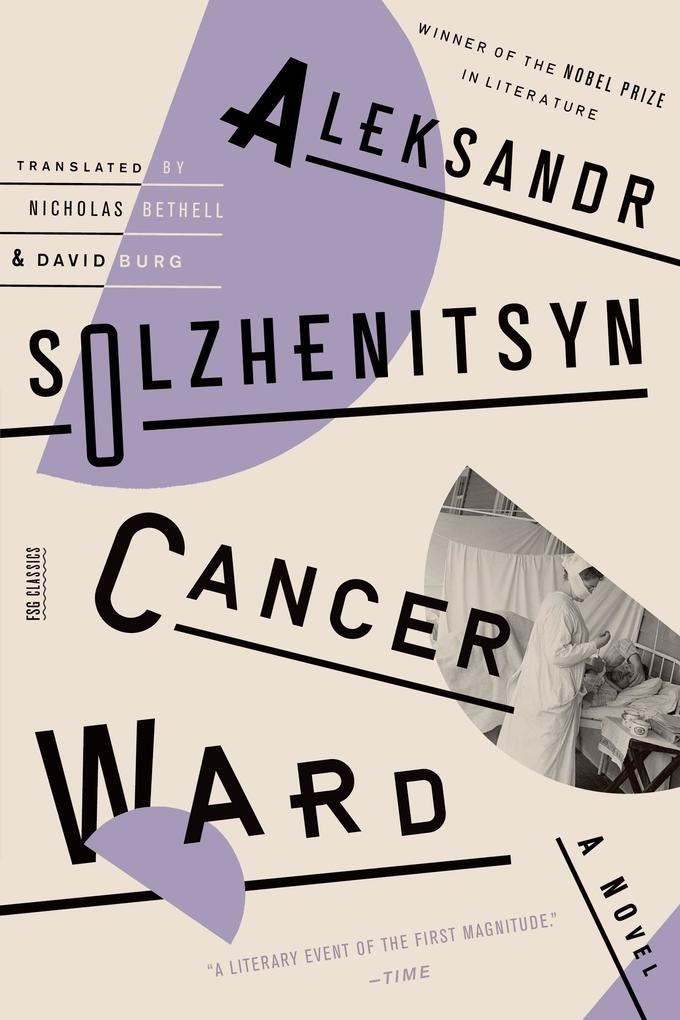
Zustellung: Mo, 09.12. - Fr, 13.12.
Versand in 2 Wochen
VersandkostenfreiBestellen & in Filiale abholen:
The Russian Nobelist's semiautobiographical novel set in a Soviet cancer ward shortly after Stalin's death
One of the great allegorical masterpieces of world literature, Aleksandr Solzhenitsyn's Cancer Ward is both a deeply compassionate study of people facing terminal illness and a brilliant dissection of the cancerous Soviet police state.
Cancer Ward, which has been compared to the masterpiece of another Nobel Prize winner, The Magic Mountain by Thomas Mann, examines the relationship of a group of people in the cancer ward of a provincial Soviet hospital in 1955, two years after Stalin's death. While the experiences of the central character, Oleg Kostoglotov, closely reflect the author's own-Solzhenitsyn became a patient in a cancer ward in the mid-1950s, on his release from a labor camp, and later recovered-the patients, as a group, represent a remarkable cross section of contemporary Russian characters and attitudes, both under normal circumstances and then reexamined at the eleventh hour of illness. A seminal work from one of the most powerful voices in twentieth century literature, Cancer Ward offers an extraordinary portrait of life in the Soviet Union.
One of the great allegorical masterpieces of world literature, Aleksandr Solzhenitsyn's Cancer Ward is both a deeply compassionate study of people facing terminal illness and a brilliant dissection of the cancerous Soviet police state.
Cancer Ward, which has been compared to the masterpiece of another Nobel Prize winner, The Magic Mountain by Thomas Mann, examines the relationship of a group of people in the cancer ward of a provincial Soviet hospital in 1955, two years after Stalin's death. While the experiences of the central character, Oleg Kostoglotov, closely reflect the author's own-Solzhenitsyn became a patient in a cancer ward in the mid-1950s, on his release from a labor camp, and later recovered-the patients, as a group, represent a remarkable cross section of contemporary Russian characters and attitudes, both under normal circumstances and then reexamined at the eleventh hour of illness. A seminal work from one of the most powerful voices in twentieth century literature, Cancer Ward offers an extraordinary portrait of life in the Soviet Union.
Mehr aus dieser Reihe
Produktdetails
Erscheinungsdatum
14. April 2015
Sprache
englisch
Seitenanzahl
544
Reihe
FSG Classics
Autor/Autorin
Aleksandr Solzhenitsyn
Übersetzung
Nicholas Bethell, David Burg
Verlag/Hersteller
Produktart
kartoniert
Gewicht
466 g
Größe (L/B/H)
208/139/40 mm
ISBN
9780374534714
Entdecken Sie mehr
Bewertungen
0 Bewertungen
Es wurden noch keine Bewertungen abgegeben. Schreiben Sie die erste Bewertung zu "Cancer Ward" und helfen Sie damit anderen bei der Kaufentscheidung.


































